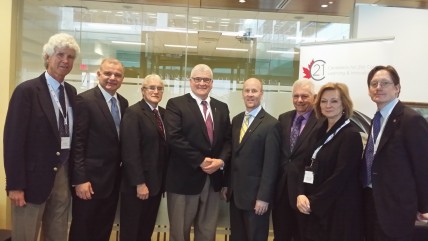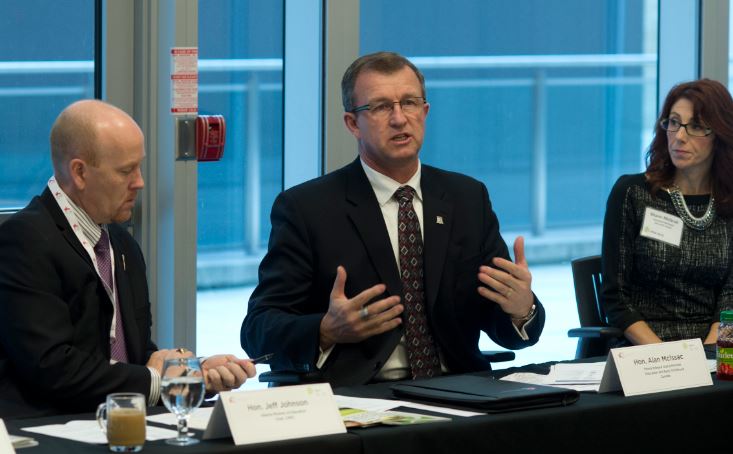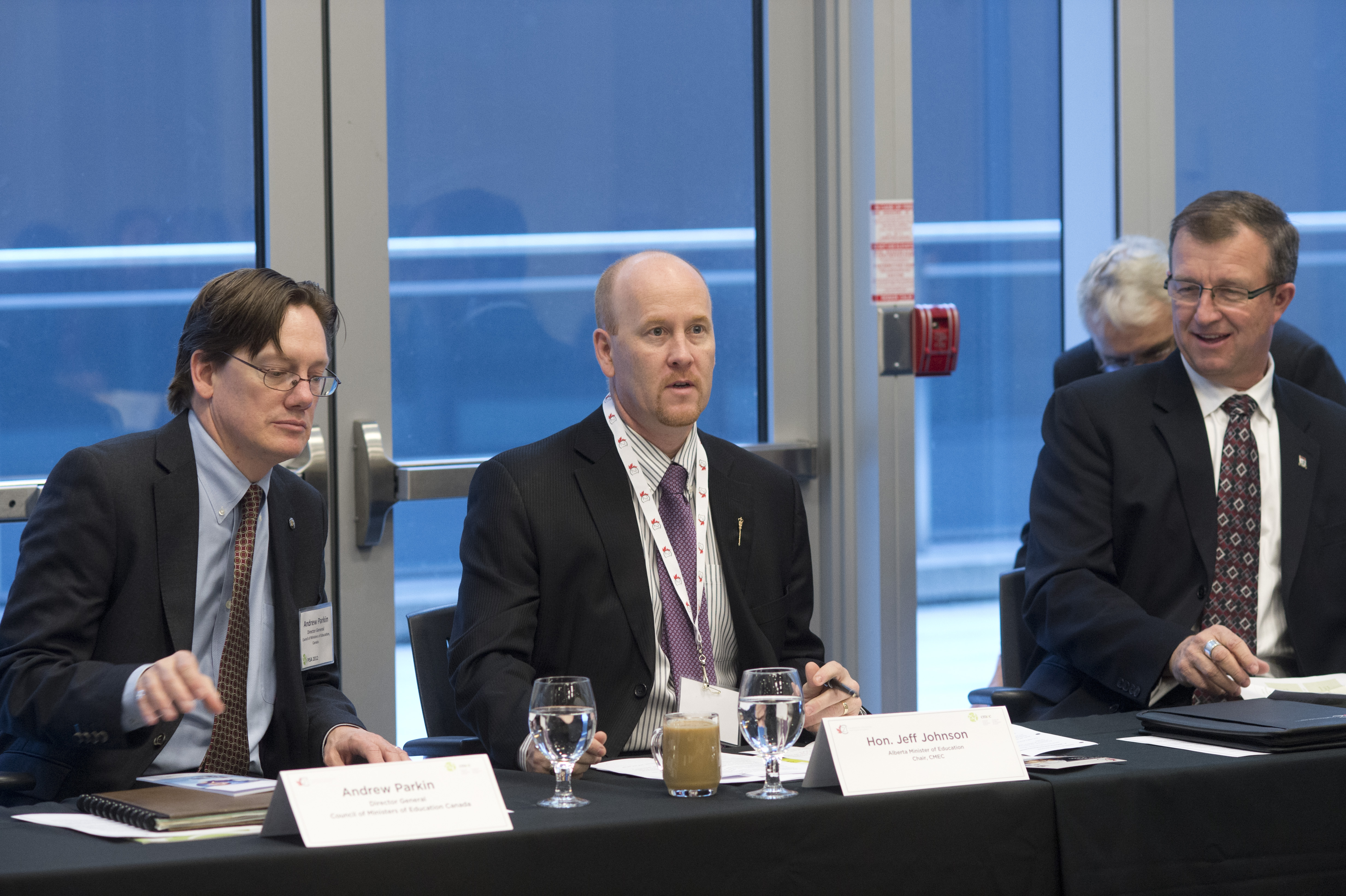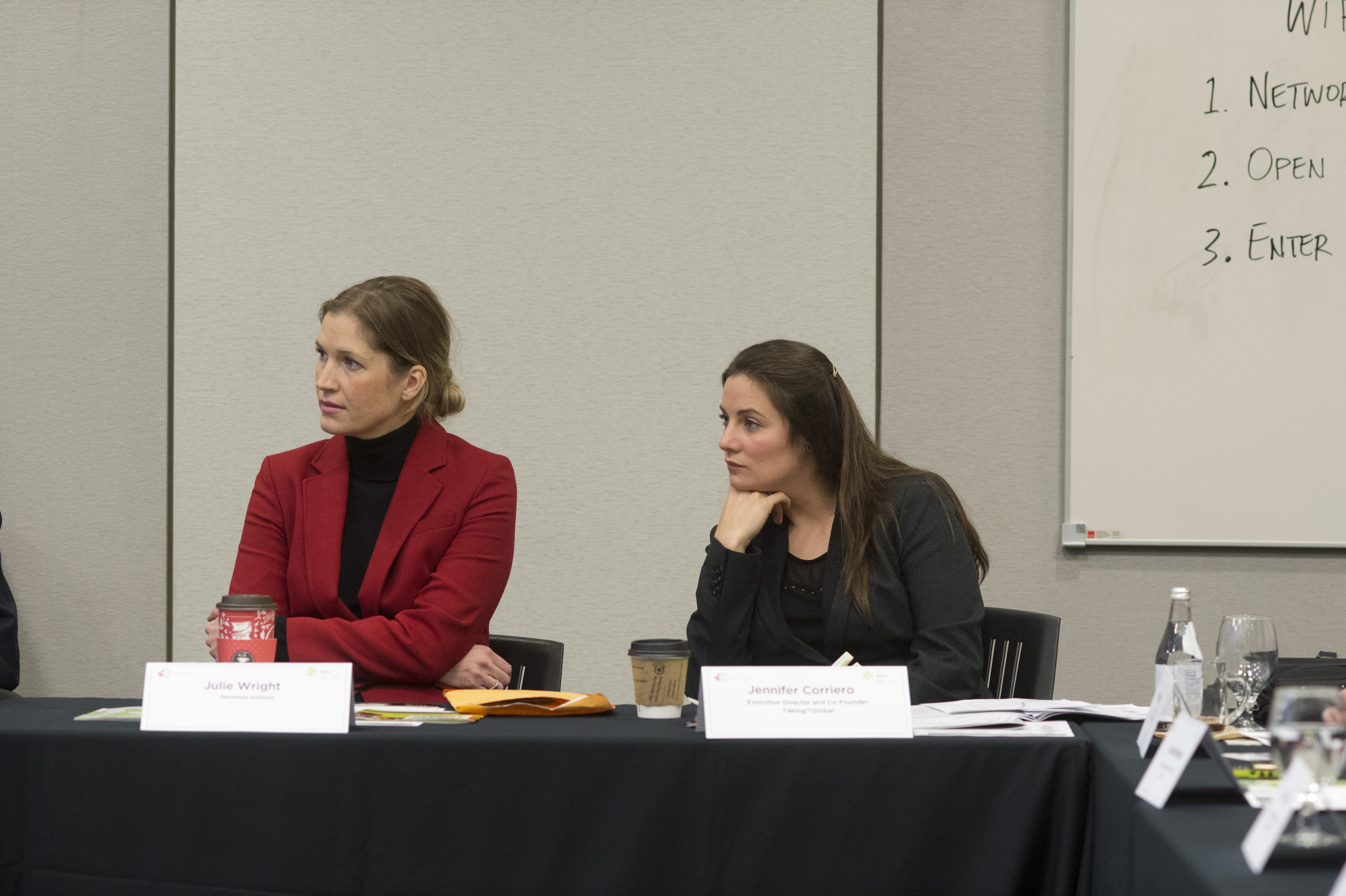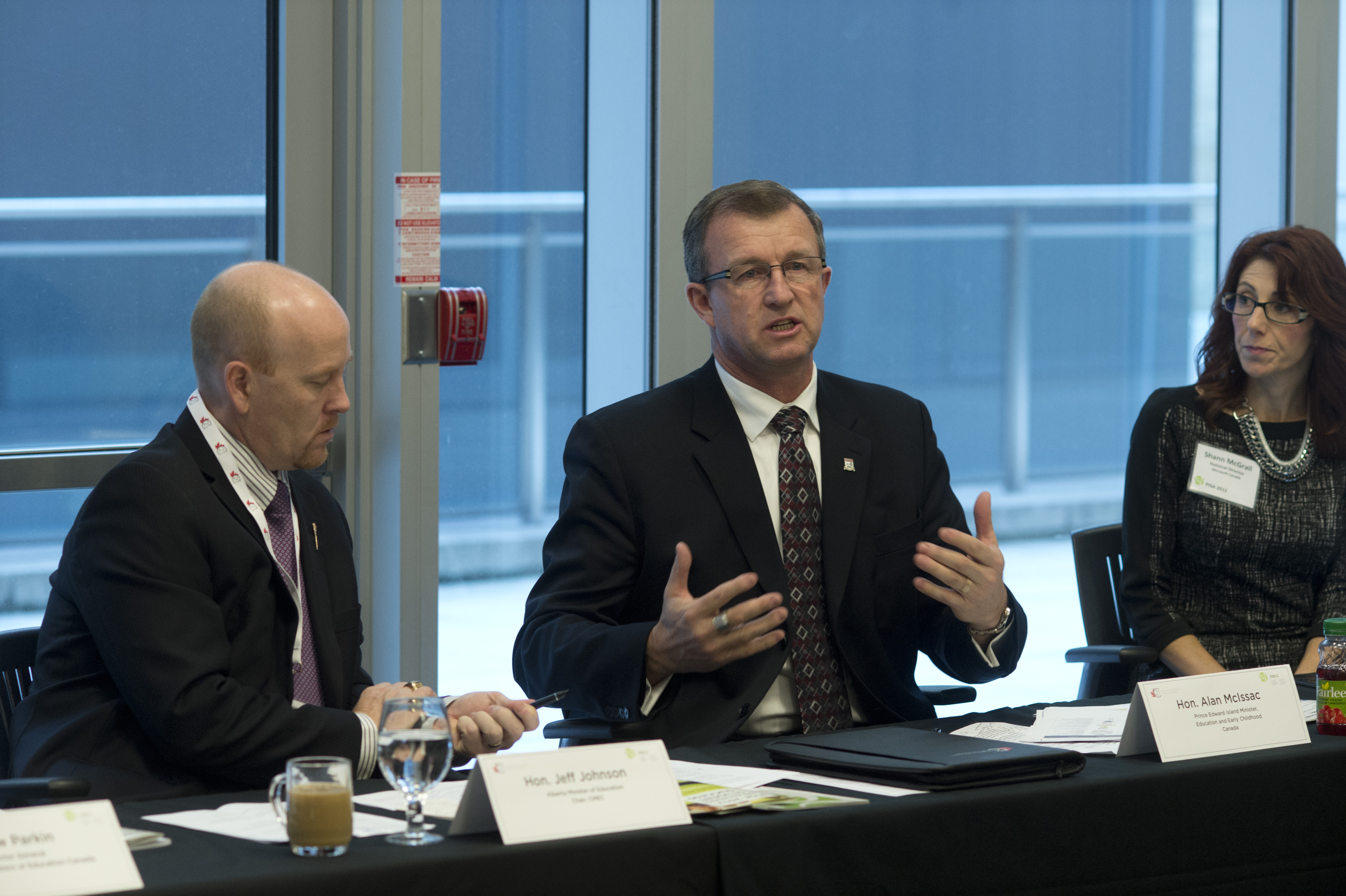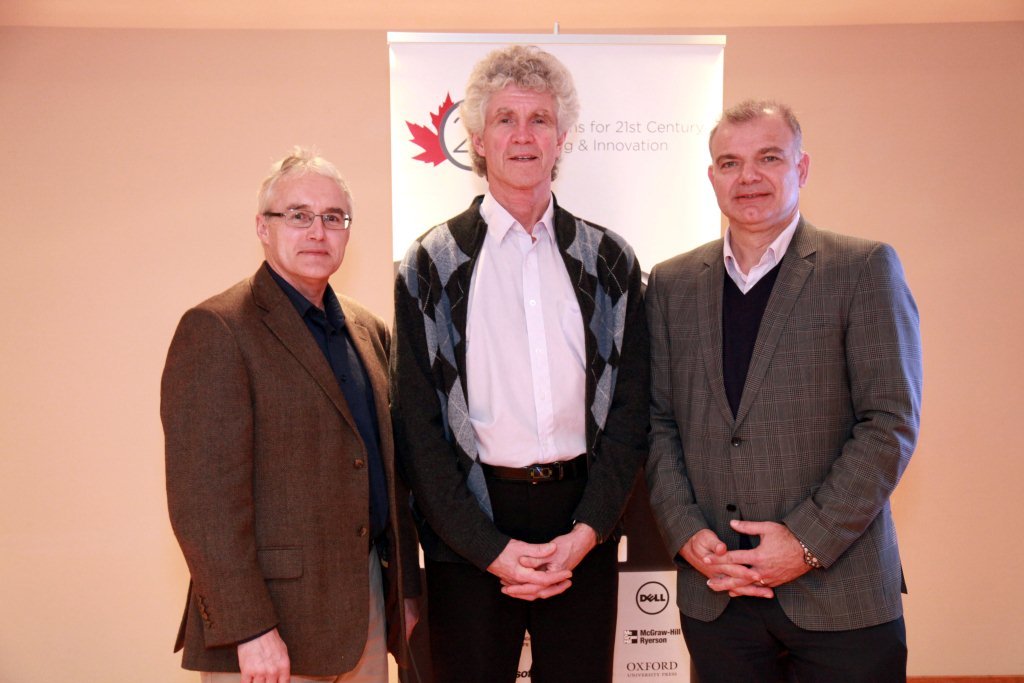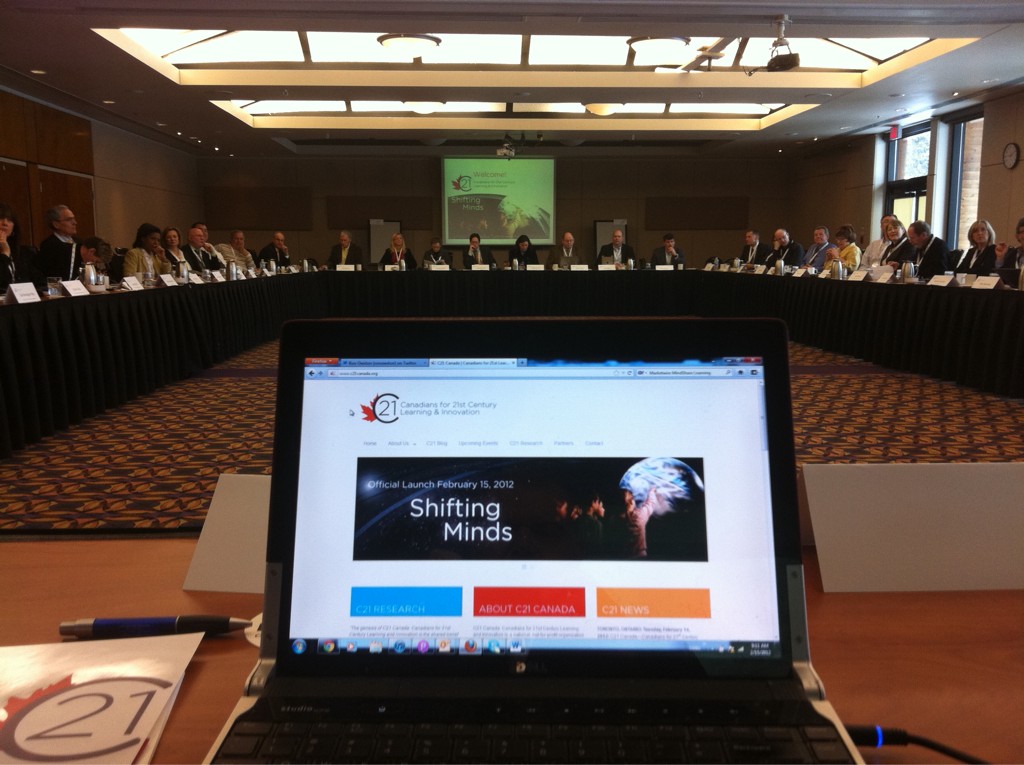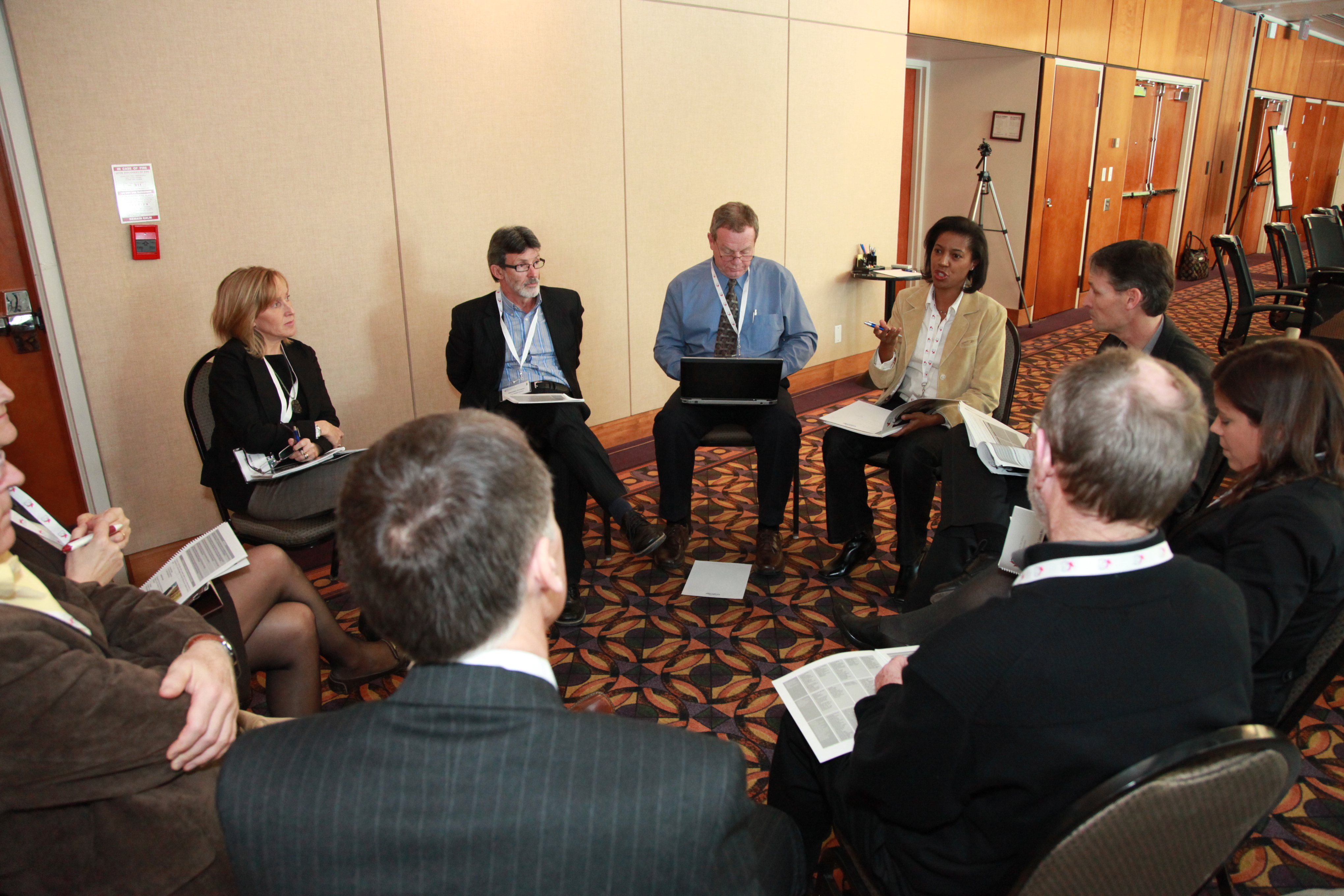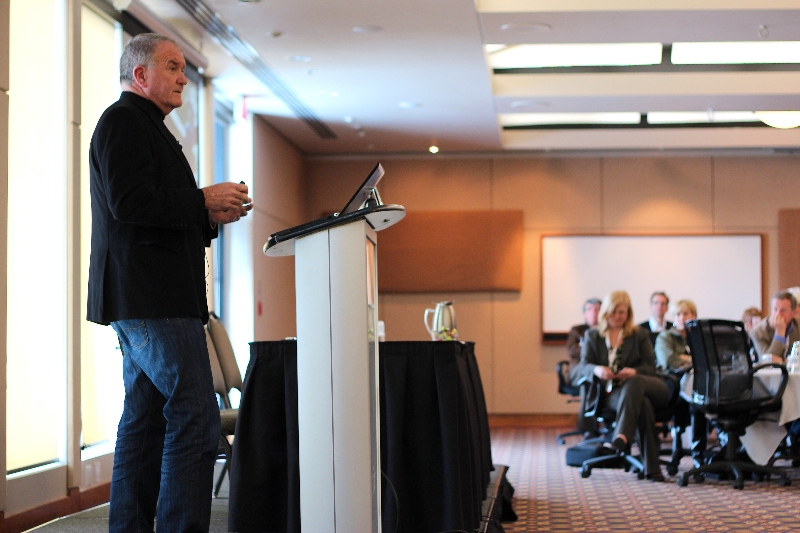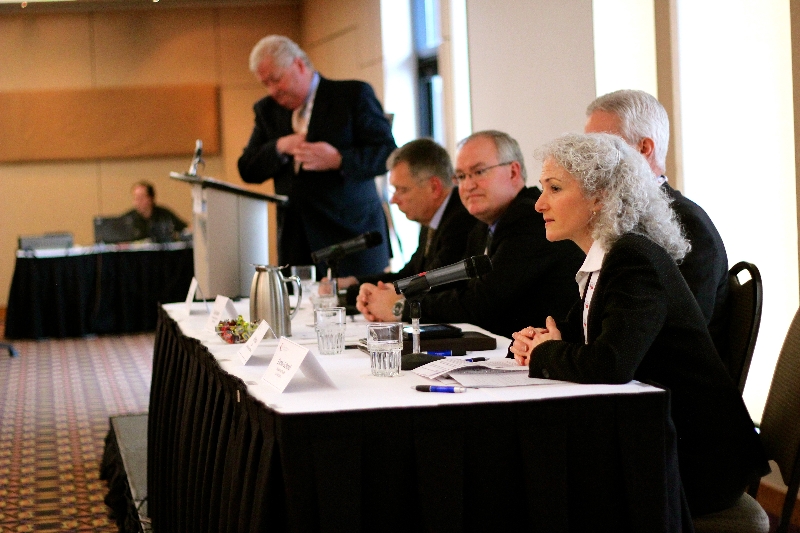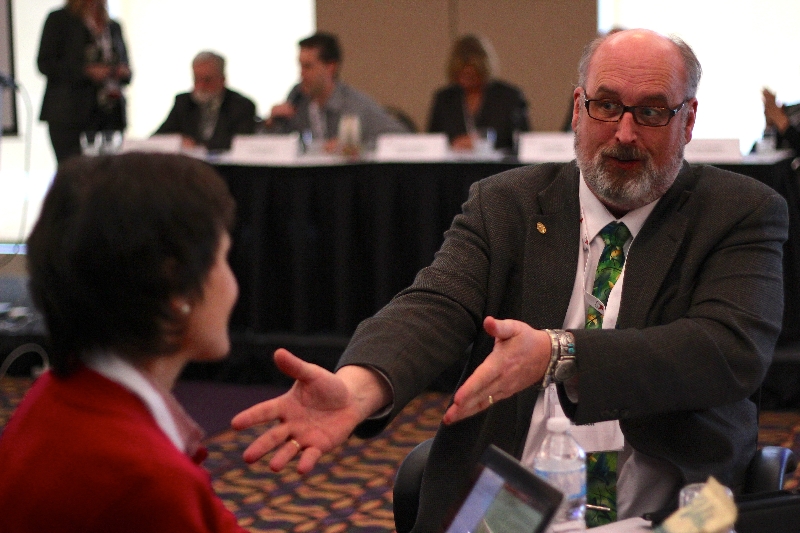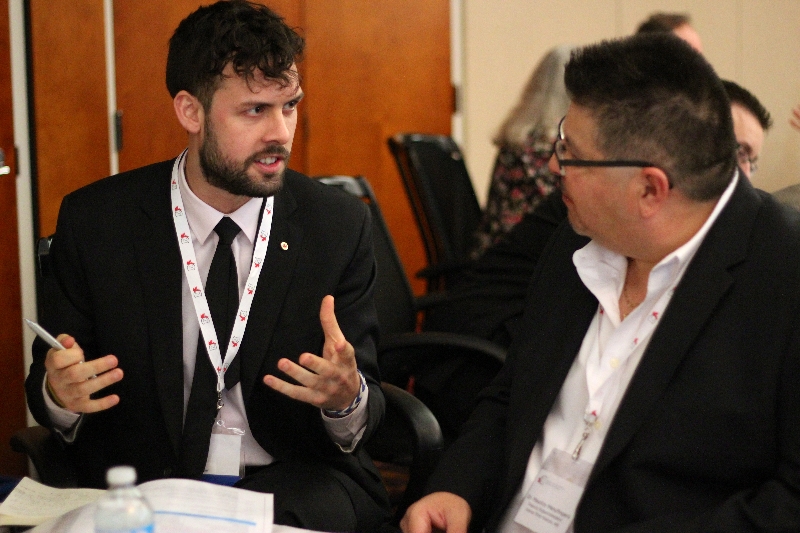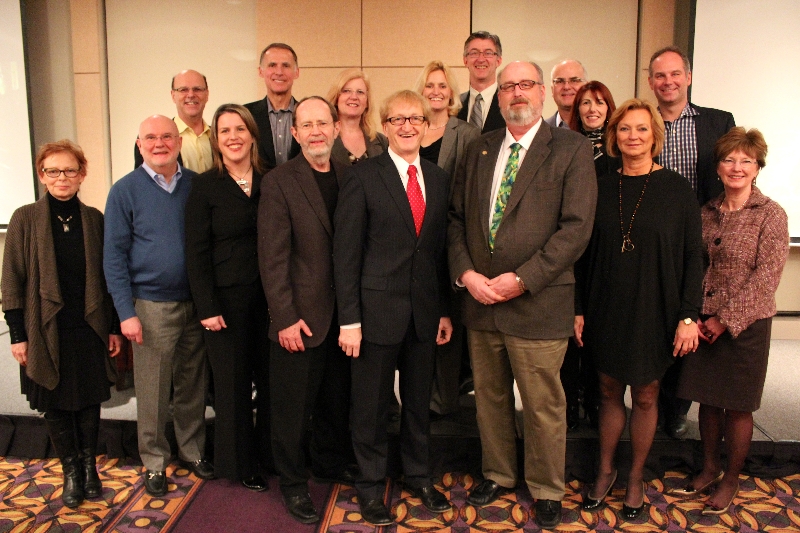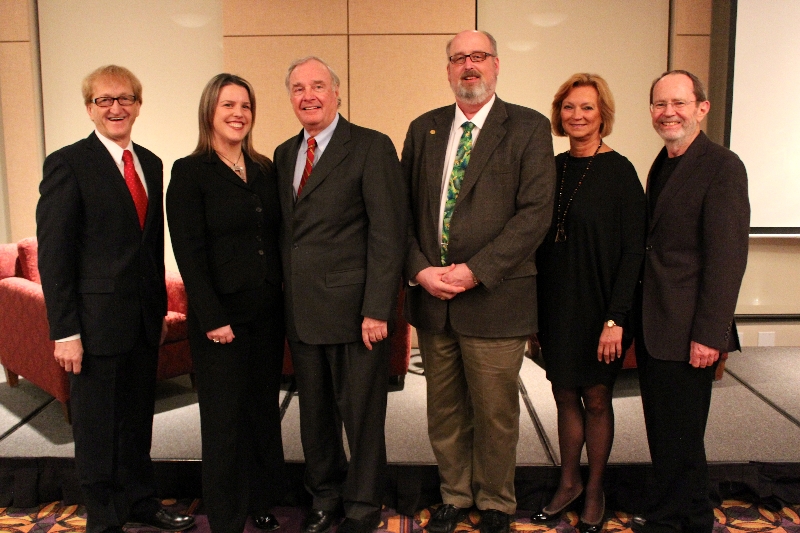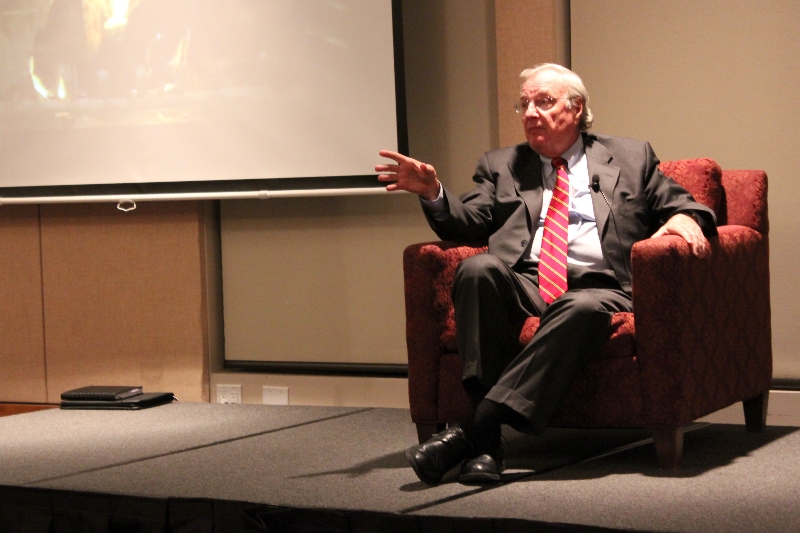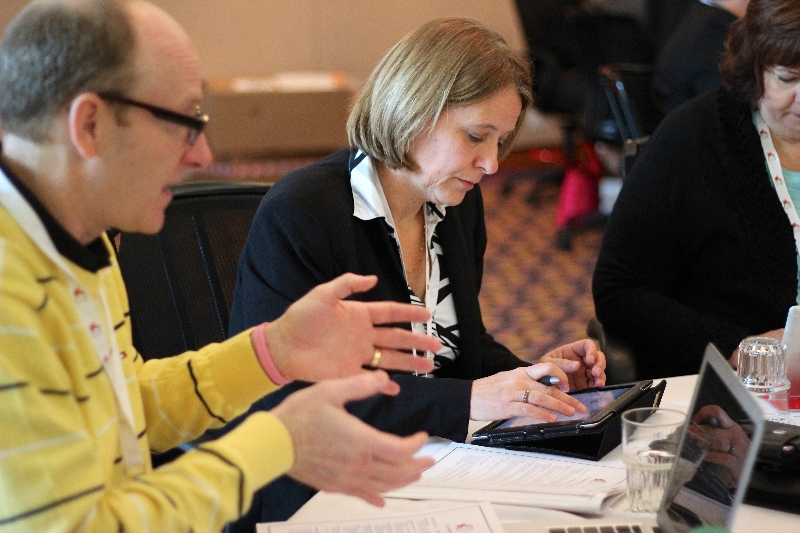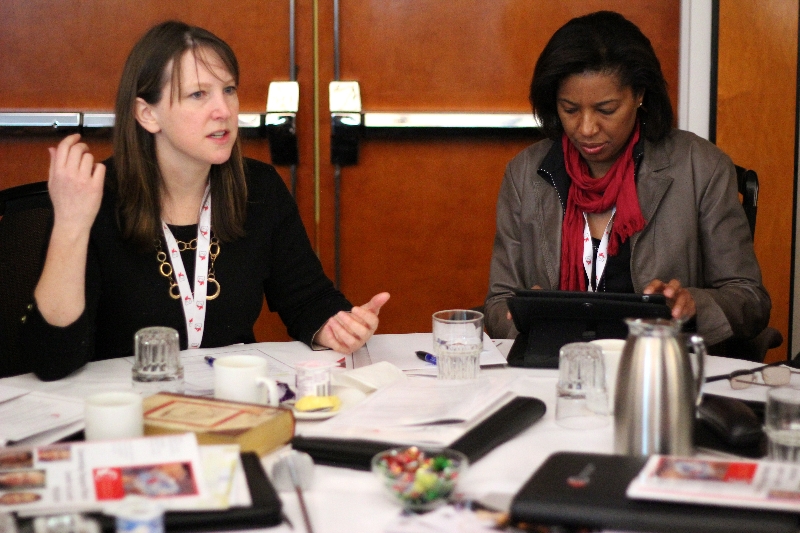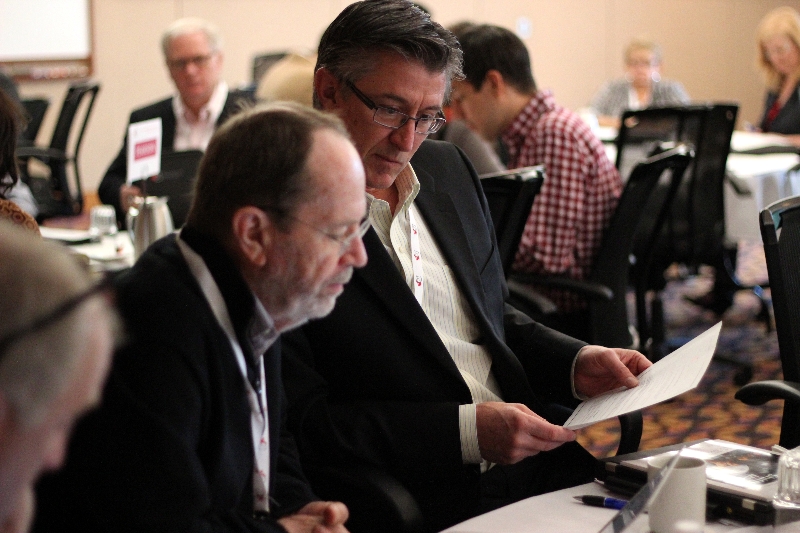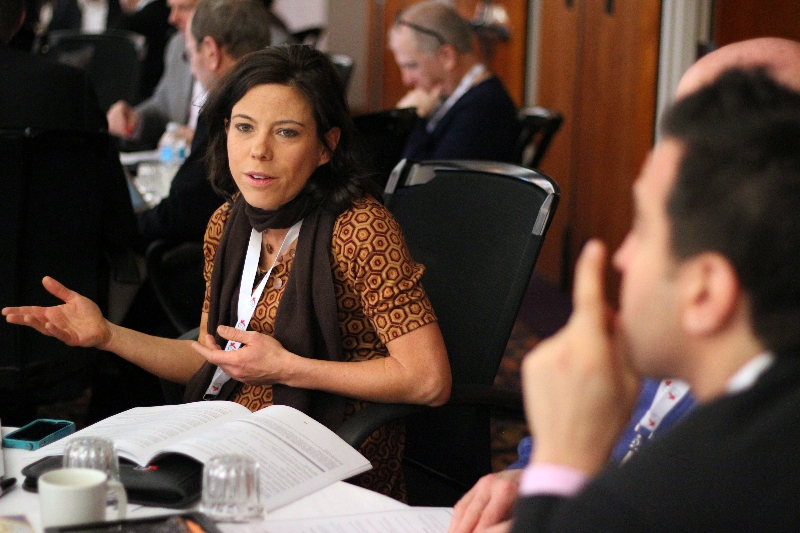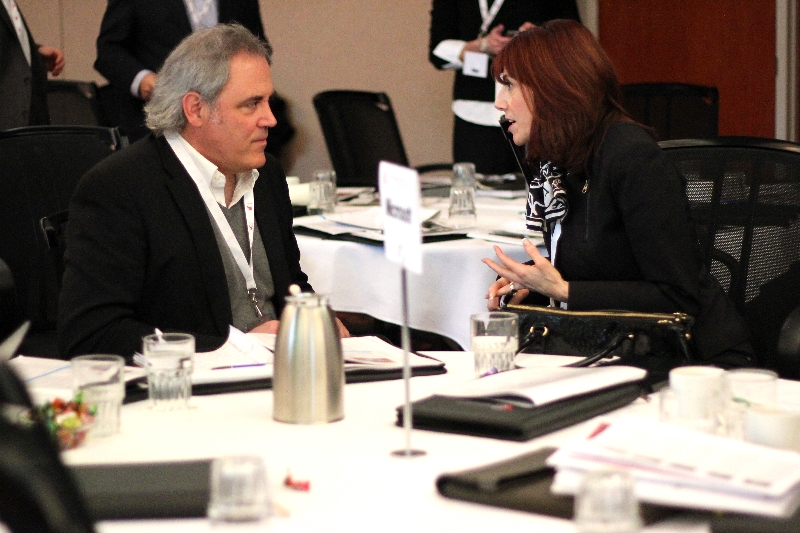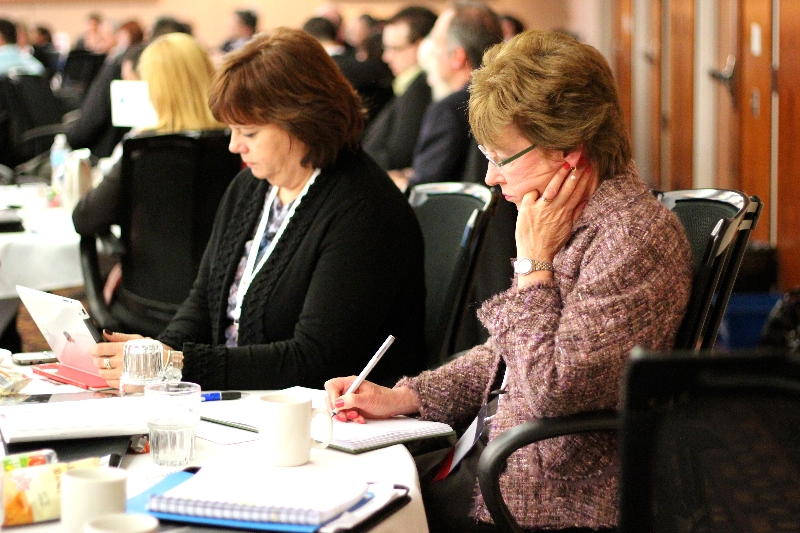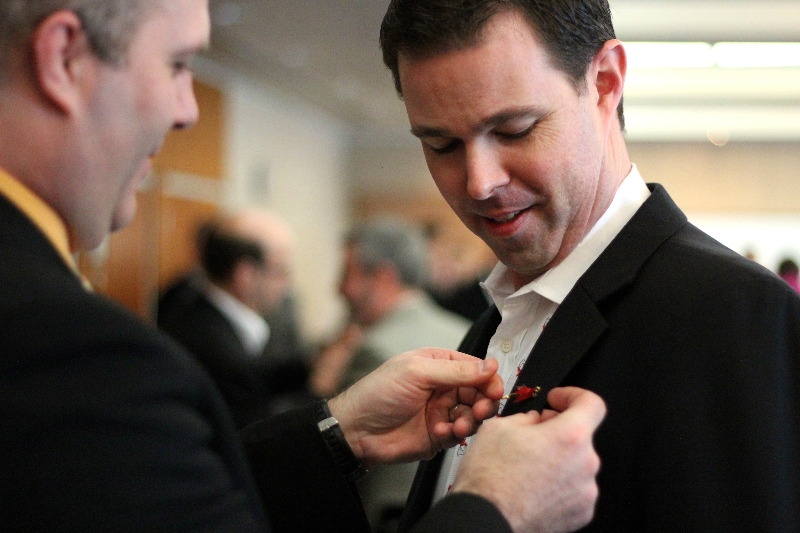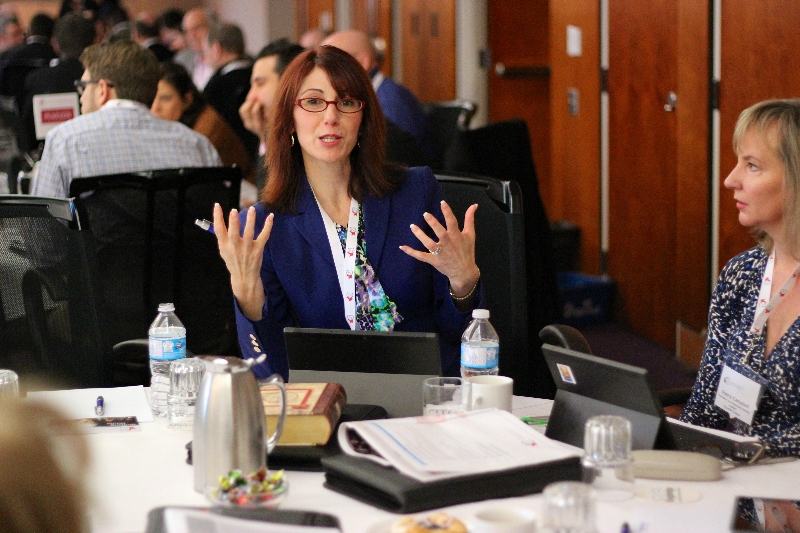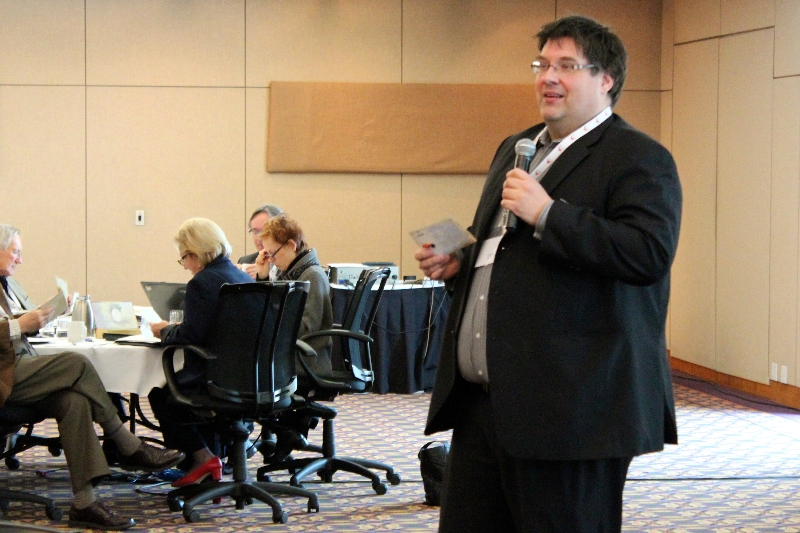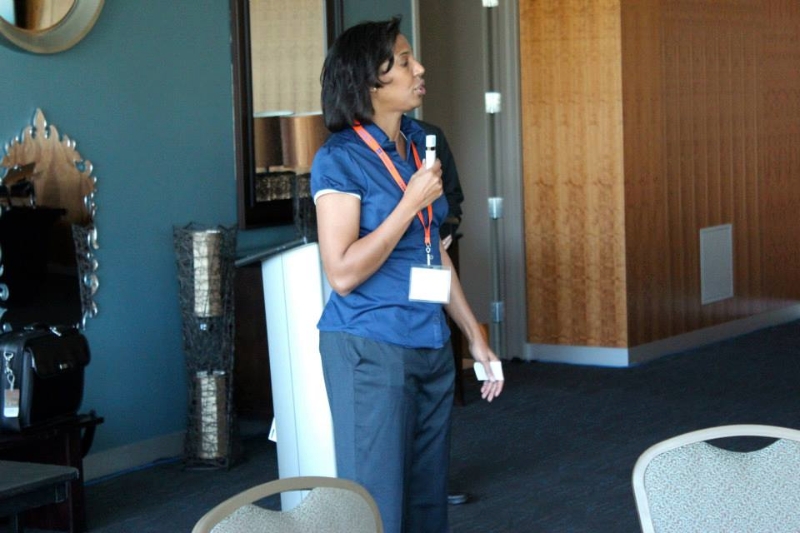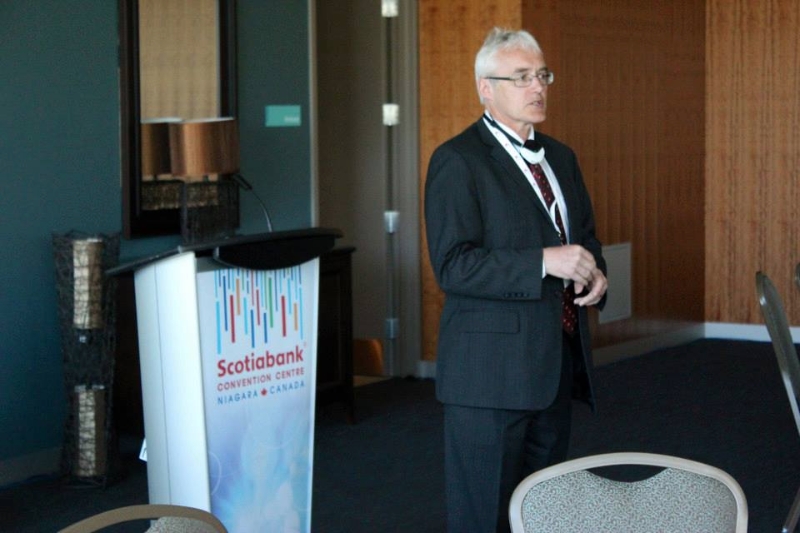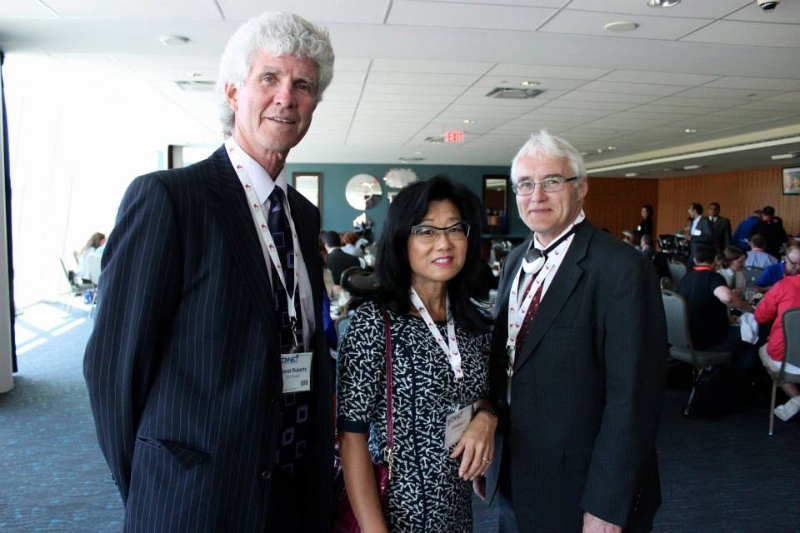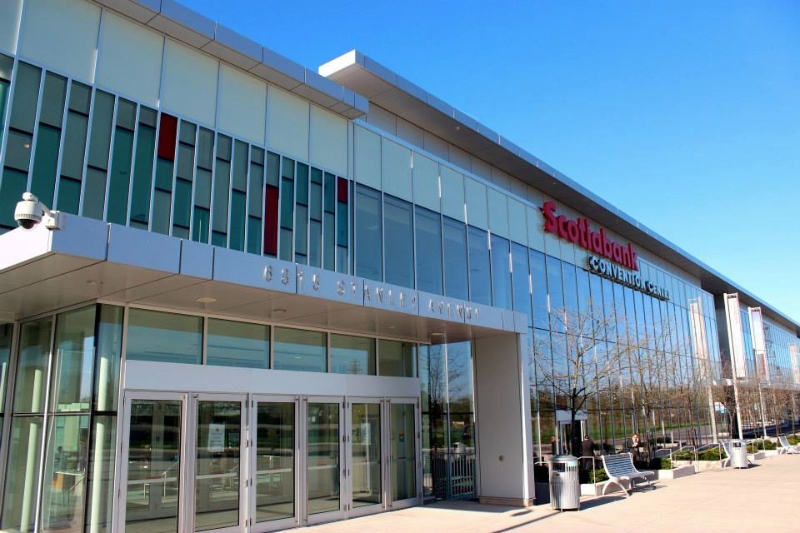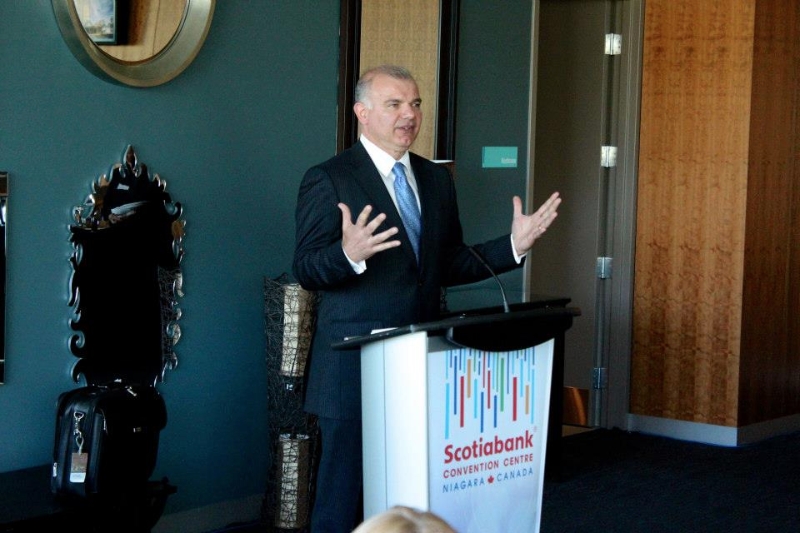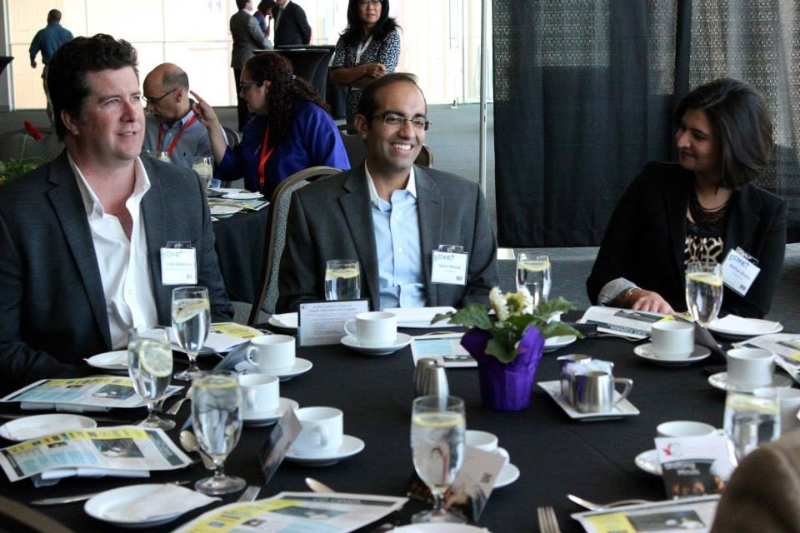L-R: David Roberts, C21 Canada; Robert Martellacci, C21 Cansda; John Kershaw, C21 Canada; David Dorward, MLA – Edmonton Gold Bar; Hon. Jeff Johnson, Minister of Education Alberta; Gord Hanna, Calgary Chamber; Naomi Johnson, former Chief Superintendent, Calgary Board of Education; and Andrew Parkin, Director General, CMEC
The 21st Century learning movement is gaining strength in Canada, although many staunch advocates will debate the depth of commitment. With the release of Achieving Excellence on April 7th Ontario joins British Columbia and Alberta incorporating 21st century competencies (e.g. creativity, critical thinking, entrepreneurialism, collaboration, communication, digital literacy) into their curricula.Achieving Excellence also commits to enhancing the province’s level of investments in technology for learners and teachers; time will tell what these commitments entail in terms of classroom resources. The 1:1 student to computer model remains the nirvana of true 21st Century learning believers, whether this model is achieved through the “bring your own device” approach or through the government’s public provision of the tool, a far more expensive option for taxpayers. Personalized access to information on the internet for students would more closely mimic today’s reality outside of the classroom so the call for individualized access is growing. As the cost of such devices decreases the opportunity for ubiquitous technology access for learners and teachers grows. With this growth come both opportunities and challenges. One of the challenges of the teaching profession in this digital era is to educate students on how to discern what information on the internet is relevant, and real. The penultimate goal however is to encourage students to create new knowledge and be innovative with the plethora of information now available to them.
Alberta remains Canada’s leader in its commitment to substantive change in public education to ensure learning is relevant to its students. The process of curricula renewal is comprehensive and inclusive of stakeholders outside the system. A review of teacher competencies to align with the plan will soon be released and while contributing to Alberta’s Inspiring Education plan for education could also prove a significant contribution to other provinces and territories.
On April 8th Jeff Johnson, Alberta’s Minister of Education and current Chair of the Council of Ministers of Education Canada (CMEC) chaired a Roundtable of business leaders in Calgary. Co-hosted by C21 Canada, Calgary Chamber, Calgary Board of Education and CMEC, the Roundtable was designed to provide Minister Johnson with input on priorities for Canada’s learning and skills agenda, in his role as CMEC’s chair. Participants complimented Johnson on his vision for education, urged him to hold the course, and highlighted that a priority their companies was to find people proficient with the soft skills (i.e. 21st century competencies). Minister Johnson noted that it was his seventh such event and the call for education to embrace the teaching of 21st century competencies has been a constant theme. The views of the Calgary business delegates to the Roundtable echoed the findings of a recent survey of its members by the Canadian Council of Chief Executives. The survey clearly demonstrated that soft skills trumped technical knowledge as the attributes Canada’s senior executives considered essential from an employability perspective.
Nova Scotia will likely be the next province to join the 21st Century learning journey in Canada. The province’s new government has launched a major overhaul of its public education systems and has appointed to panel to assist the process. The Province is also seeking a new Deputy Minister to guide them in designing a 21st Century model of learning.
Meanwhile, the topic of 21st Century learning has become the centre of political debate in New Brunswick, once the recognized leader in Canada’s 21st Century learning movement. The Opposition Liberals have begun questioning the Conservative government’s decision on why they have failed to produce a plan for public education after four years in government. During a recent Question Period the Liberal education critic questioned the current Minister of Education on why the Conservatives abandoned the provinces 21st Century learning agenda entitled NB321C: Creating a 21st Century Learning Model of Education.
The Liberals are arguing that the government has been too preoccupied with the theme of inclusion, to the exclusion of all other education priorities. It is clear that the political battle lines are being drawn in New Brunswick for the impending fall election.
The fact remains that the 21st Century learning model is now centre stage in the political and public discourse on public education in Canada. With declining levels of student engagement, the benefits of digital learning, the demand for people with soft skills, and a growing recognition that 21st Century learning model is more aligned with the social and economic realities of the knowledge and digital age, the advancement of this new model in Canada will undoubtedly continue.
The issue is whether Canada is able to keep pace with other countries in positioning its youth for success in the knowledge and digital age, and whether the public will provide politicians with the social license to be bold and undertake the level of transformation required. Clearly, engaging the public in the debate on why change is required and what needs to be done is the only way this is going to happen.
John Kershaw
President
C21 Canada

